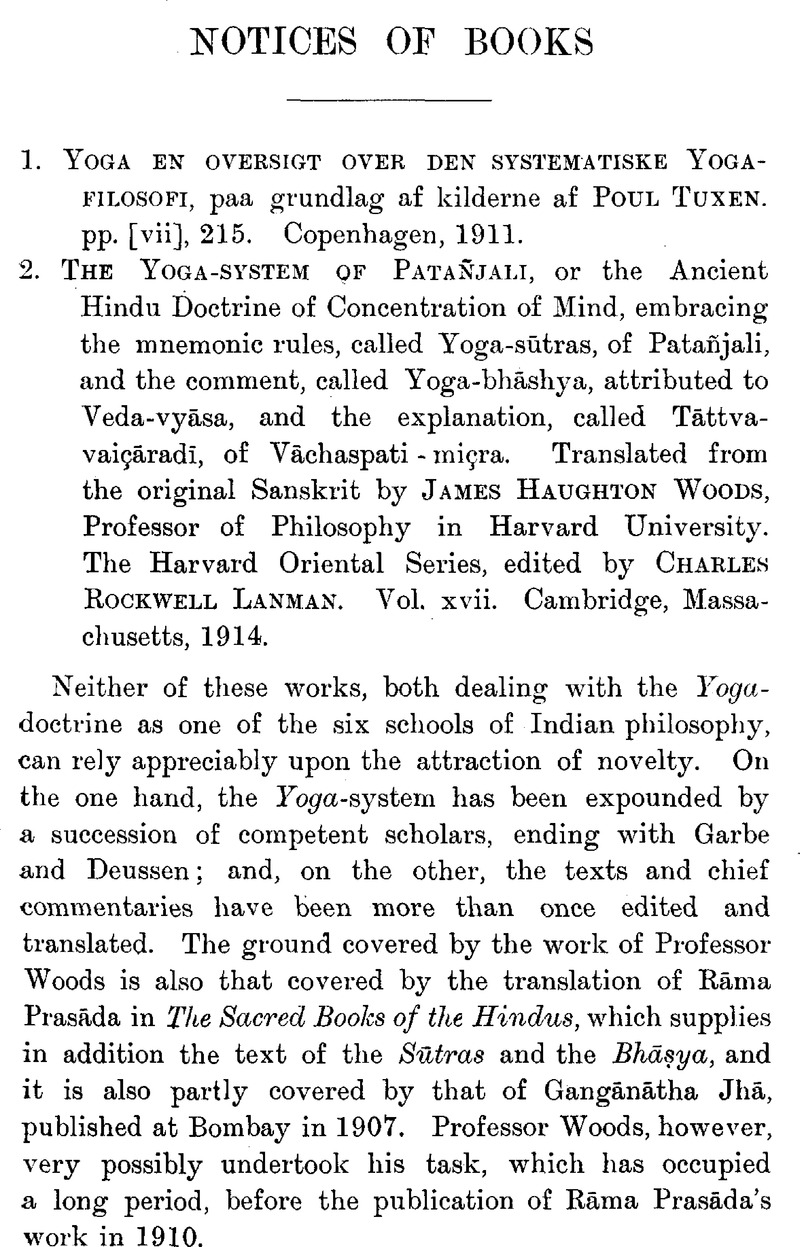No CrossRef data available.
Article contents
1. Yoga en oversigt over den systematiske Yoga-filosofi, paa grundlag af kilderne af Poul Tuxen. pp. [vii], 215. Copenhagen, 1911. - 2. The Yoga-system of Patañjali, or the Ancient Hindu Doctrine of Concentration of Mind, embracing the mnemonic rules, called Yoga-sūtras, of Patañjali, and the comment, called Yoga-bhāshya, attributed to Veda-vyāsa, and the explanation, called Tāttva-vaiçāradī, of Vāchaspati – miçra. Translated from the original Sanskrit by James Haughton Woods, Professor of Philosophy in Harvard University. The Harvard Oriental Series, edited by Charles Rockwell Lanman. Vol. xvii. Cambridge, Massachusetts, 1914.
Review products
1. Yoga en oversigt over den systematiske Yoga-filosofi, paa grundlag af kilderne af Poul Tuxen. pp. [vii], 215. Copenhagen, 1911.
2. The Yoga-system of Patañjali, or the Ancient Hindu Doctrine of Concentration of Mind, embracing the mnemonic rules, called Yoga-sūtras, of Patañjali, and the comment, called Yoga-bhāshya, attributed to Veda-vyāsa, and the explanation, called Tāttva-vaiçāradī, of Vāchaspati – miçra. Translated from the original Sanskrit by James Haughton Woods, Professor of Philosophy in Harvard University. The Harvard Oriental Series, edited by Charles Rockwell Lanman. Vol. xvii. Cambridge, Massachusetts, 1914.
Published online by Cambridge University Press: 15 March 2011
Abstract
An abstract is not available for this content so a preview has been provided. Please use the Get access link above for information on how to access this content.

- Type
- Notices of Books
- Information
- Copyright
- Copyright © The Royal Asiatic Society 1915
References
1 Vikalpa (“imagination,” Rāma Prasāda; “fancy,” Gaṅgānātha Jhā) is thought formally admitting affirmation and denial, i.e. non-intuitive thought, according to the Sāṅkhya of merely conventional value.


